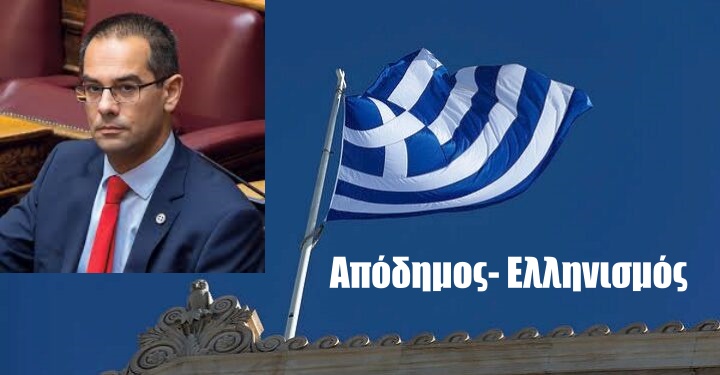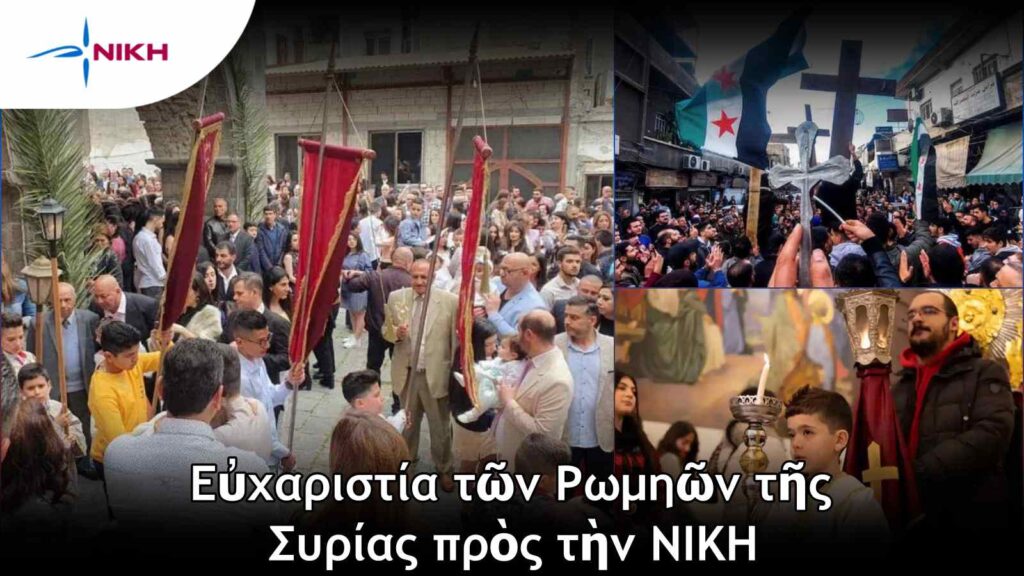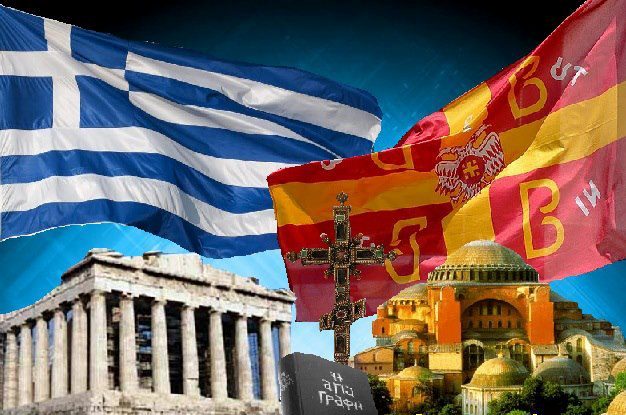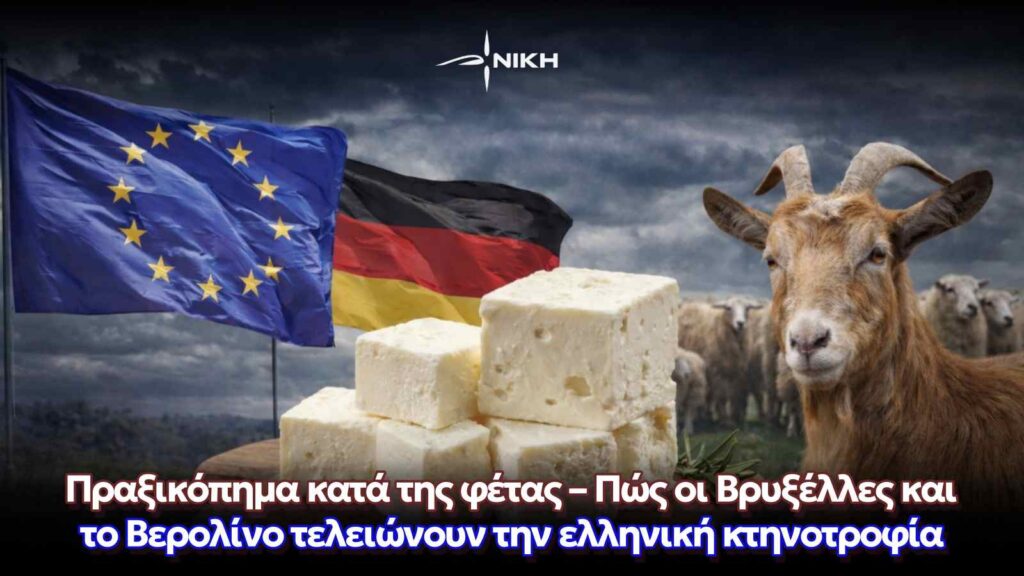Over the last two centuries, Greece has proceeded as a modern state in a constant condition of ontological diminishment. We live within an internal, almost existential, instability. Enervated, without dynamism, without the joy of beholding the light to which, as a collective, as a Genos (sic), we were accustomed, we consume ourselves in an anxious struggle for everyday individual subsistence, having lost our collective signification. The root of this decline is to be found in the fundamental errors committed at the founding of the neo-Hellenic statelet.
The establishment of the Greek state—expressed both symbolically and in essence by proclaiming Athens the capital of the statelet—took place under the absolute tutelage and control of the then Great Powers. The statelet was organized (by design) upon a model foreign to our idiosyncrasy, to our own identity. First of all, a “pure” nation-state was created, following the model of Western nationalism, which violently renounced the ecumenical, supranational, romeike tradition of our Genos—a tradition that grounded identity not in racial or narrowly geographical criteria, but in common faith and common culture. In this way millions of Romeoi were cut off from the national trunk, left prey to the new nationalisms sprouting in the Balkans and the wider Middle East.
At the same time, virtually all our institutions was constructed on Western templates, utterly ignoring the mores, the unwritten customary law, the written legal framework, the bureaucracy, and the legal and constitutional organization of our homeland of Romanía (principles, communes, organs of state, distribution of powers, Roman law, state tradition, experience, outlook, frames of reference and aims). Furthermore, the Church—formerly the central axis of the functional framework of synallelia (close cooperation)—was, in the nascent statelet, relegated to the level of an insignificant social club, and indeed one fully controlled by the state, and was led in dramatic fashion to complete severance from the Mother Church of Constantinople.
Among the most ruinous choices was the unprecedented turn exclusively to classical antiquity—an inconceivable infantilism. A “historical air-bridge” of two thousand years was erected, as if nothing intervened between Pericles and 1821. Instead of Hagia Sophia, our symbol became the Parthenon. Instead of our center—Constantinople—Athens. Instead of the Divine Liturgy, human speculation. We lost our ecumenical point of reference, our eschatological horizon, the prospect of the Theanthropy. We lost the whole for the sake of the partial.
Within this framework of forfeited identity, Athens as capital embodies precisely this problem. It symbolizes an attachment to antiquity and a severance from the millennial trunk of our Romeosyne. The issue is profoundly identitarian and existential. The solution, therefore, cannot be merely managerial; it must be radical, symbolic, and deeply ontological. We must change inwardly, recover the continuity of the thread of our collective experience, and give expression to it by altering our orientation, our focal point and our center. And since our center cannot immediately be Constantinople once again, let Thessaloniki become the new center of our collectivity; let Thessaloniki become the new capital of the country.
Thessaloniki is the city that became the “Co-Reigning City” (Symbasileuousa) in the years of Romanía (the wrongly and deceitfully named Byzantium); the city that is always next in seniority after Constantinople; the city that bears the same spiritual dynamism and significance, that symbolizes and articulates the same imperatives as Constantinople; the city that signals the unity of the state and the continuation of the struggle even in those times when the Queen of Cities lies under foreign yoke, as during the Latin rule.
Let us also consider this from another, active vantage point: let the transfer of the nation’s capital to Thessaloniki become an emblematic aim—the symbol, the banner—of the renaissance of the Romeiko. Let such a move proclaim, loud and clear, our deliberate historical turn from the local to the ecumenical, from the partial to the whole, from the air-bridge of antiquity to the true historical continuity and course of our Genos, of our people; from tutelage to our self-subsisting path; from enervation and dissolution to rallying and the bringing-forth of our strengths; from compradorism and cultural dependence to our own authentic thought and proposal; from nihilism to vision; from antiquity to the future—and to our resplendent, eschatological horizon.
I will not dwell on the fact that transferring the capital shifts the country’s center of gravity to where it strategically belongs—into the broader region of the Balkan Peninsula and Asia Minor—thereby making it a major political, diplomatic, commercial, economic, and cultural hub for that entire region, strengthening its influence, and serving as a bulwark against the manifold expansionist designs and destabilizing actions of third powers.
I will not dwell on the fact that such a transfer would ignite immense developmental momentum for Macedonia, Thrace, and all of Northern Greece—attracting investment, creating new jobs, thereby arresting the demographic hemorrhage and generalized atrophy that increasingly render the region de facto vulnerable to the geostrategic appetites of others.
I will not dwell on the fact that the transfer—through proximity to the northern borders, the dispersion of defensive infrastructure, and the evident reminder to all of our non-negotiable resolve to defend every inch of national soil—fortifies the country’s defense. Nor will I dwell on the strategic disadvantage of concentrating half the nation’s population in Athens, which renders it vulnerable in multiple ways to modern warfare technologies and capabilities.
I will not dwell on the fact that transferring the capital would transmit the distinctive spiritual and cultural legacy and living tradition of the city of Saint Demetrios and Saint Gregory Palamas, thereby fertilizing our collective consciousness.
I will dwell only on this: such a move must be viewed in ontological dimensions, as a game-changer condition—one that alters in depth the entire framework, that truly transforms our very existence, the whole meaning and perspective of our life. It is a condition that, henceforth, declares—first of all to ourselves, then to the peoples of the Balkan Peninsula and the Mediterranean, and to the whole world—that, look, we are not only Greeks and descendants of Pericles and classical antiquity, but something far greater, more mature, and broader: we are the pious Genos of the Romeoi, proceeding through the ages with an eschatological horizon that has soteriological implications for all people.
Instead of Athens, let us at last turn to the heart of our Genos, to the heart of our people—to the Constantinople—not as a geographical claim but as a spiritual orientation. And Thessaloniki is the place that embodies that orientation today.
When Christ met Simon, He said: “You are Simon son of Jonah; you shall be called Cephas, which is translated Peter.” (John 1:42). He did not merely change his name. He changed his mission, his signification, his very being. This is the challenge that lies before us as a nation: to dare our own change of orientation—and of the name of our center and our heart. To become again what we always were. And the transfer of the capital to Thessaloniki is the first and decisive step upon our difficult yet resplendent journey.
Ioannis Kon. Neonakis
Head of Romeosyne Section of NIKI
romiosynh@nikh.gr
Notes: (a) The term “Romanía” (with an accent on the í to distinguish it from the modern state of Romania) is the correct designation for the Roman Empire after the transfer of its capital, instead of the erroneous and deliberately employed term “Byzantium”.
(b) For reasons of more accurate phonological rendering and simplification, the term “Romeoi” was preferred over “Rhomaioi”.
(c) The term “Romeosyne” was preferred over “Romanitas”, as it better expresses the culture of the Roman Empire after the prevalence of Christianity.
(d) romeike (adjective): of the Romeoi.
(e) Romeiko (noun): the romeike world, the romeike body.
Related posts
-
Gratitude from the Romeoi of Syria to NIKIRomeosyne 20 October 2025



